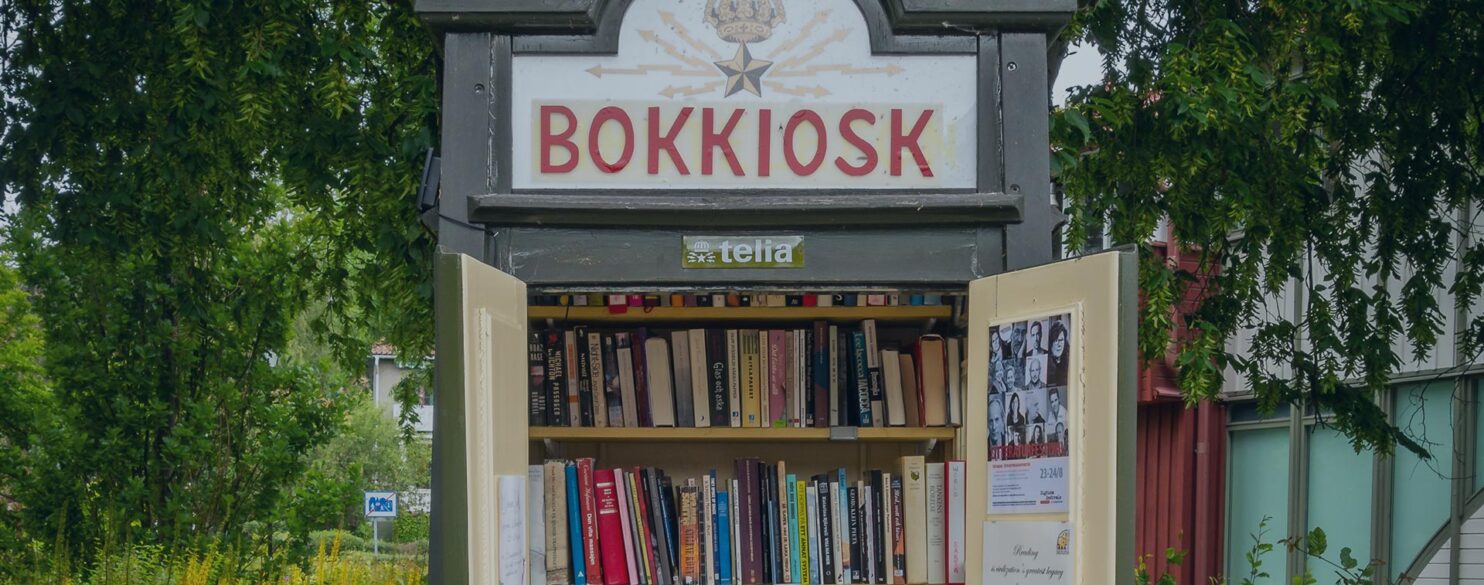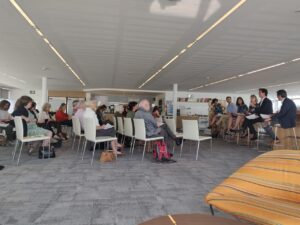On 1 February SELTA members attended a workshop on writing book reviews, especially reviews of fiction in translation, run by Rosie Goldsmith of the European Literature Network. The event brought in an impressive range of reviewers, critics and editors to share their reviewing experience and opinions with an audience of aspiring reviewers, translators included. Here Sarah Death, Fiona Graham and Kate Lambert give their thoughts on three and a half hours listening to, sometimes contradictory, words of wisdom from the experts.
Sarah Death:
This non-stop three-and-a-half-hour sequence of engaging speakers left us with heads in a whirl and checklists coming out of our ears, but it was packed with good practical advice. One of my overriding impressions was of the goodwill shown to the European Literature Network and its energetic founder Rosie Goldsmith by all these translator-friendly movers and shakers in the literary media, who gave their services without charge, making this a free event for participants. Speakers included seasoned reviewers, writers and publishers, some wearing multiple hats, and they were generous with their top tips.
Read the whole book (not everyone does), and allow it to settle in your mind before starting to write. A strong personal response and going with your gut instinct is a good thing, but avoid being over-emotional, or your review will say more about you than about the book. By all means be witty and funny, but also take your job seriously and do your homework. Try to make your review a narrative, with a beginning, middle and an end. Arifa Akbar said the best reviews were rather like telling someone in the pub what happened in a book, in two sentences.
The reviewer should attempt to establish her authority, but she can achieve this in far better ways than the clever comparisons with other authors in which some reviewers indulge. (In this, a review of course differs from a reader’s report for a publisher.) In terms of reviewing translations, the perennial question arose of whether someone who does not speak the source language can judge the translation. Even if they do not, as is usually the case, it is possible and desirable to make informed comment. Boyd Tonkin took the view that while translators of, say, genre fiction might be happy to be self-effacing, the majority of translators hoped to feature in the review and not just be skimmed over with a ‘deftly translated by X’. He felt that with experience, the reviewer develops an instinct for the strategy a translator has developed and employed.
He also answered the question I raised in an earlier blog on the SELTA site, namely whether a publication like SBR could be expected to avoid spoilers altogether. He agreed that we can, and should, allow ourselves these, because we are largely reviewing as-yet-untranslated books, whose endings the average Anglophone publisher cannot know unless we tell them.
The discussion kept coming back to the vexed question of the negative review, especially in a small circle where it will be easy to ruffle feathers. The majority view was that we cannot always run away from writing negative reviews, but there is no excuse for hatchet jobs. One can write a rounded review which acknowledges a book’s good points while also pointing out what one perceives as its flaws. Alexandra Masters from the online magazine BookSmoke reminded us of a wonderful quotation from Kurt Vonnegut:
‘As for literary criticism in general: I have long felt that any reviewer who expresses rage and loathing for a novel or a play or a poem is preposterous. He or she is like a person who has put on full armor and attacked a hot fudge sundae or a banana split.’
A reputation for honest reviews – such as that we have sought to build up in SBR – helps to give a publication and its reviewers credibility. It was heartening if surprising to hear that statistics apparently show a shockingly bad review has just the same effect on book sales as an effusively good one: the public is drawn to both equally. The real trick is to become adept at writing all those in between, or what Claire Armitstead referred to as ‘the three-star area of reviewing’.
********
Fiona Graham:
‘Critics and reviewers are like vultures – not popular, but essential to the ecology,’ according to Claire Armitstead, head of book reviews at the Guardian. If that unflattering description applies to book reviewers in general, what can one say of translators who review the work of their peers, literature in translation? To extend the zoological metaphors, are they not doomed either to play the piranha in the proverbial duckpond if critical, or, conversely, to engage in the mutual grooming typical of gibbons if they praise the work of a colleague?
The European Literature Network’s February workshop on reviewing translated literature helped allay some of these fears. A recurrent theme in the top tips shared by an impressive array of professional reviewers and writers was the reviewer as ‘book appreciator’, to quote Alexandra Masters, founding editor of BookSmoke. ‘Reader-to-reader generosity’, she said, was the key to good reviewing. While several speakers acknowledged the facile entertainment value of slating a book, all stressed the superior skill that writing a measured critical appreciation involves.
Is there a big difference between reviewing a work in the original language and one in translation? Several speakers said this depended largely on the genre. Boyd Tonkin, Senior Writer at the Independent, suggested that reviewers of crime fiction in translation would probably pay less attention to the translation aspect. This view was echoed by Max Easterman, a regular reviewer of crime writing at the European Literature Network’s Riveting Reviews. On the other hand, Max stressed the importance of getting the language exactly right in this often underestimated genre. The writer – like the translator and the reviewer – needs to understand the milieu, including authentic terminology and slang, to ‘make the story come alive’.
When reviewing more traditionally literary fiction, the reviewer may decide to pay greater attention to the translator’s role. Sadly, few are able to compare the translation with the original – and even if they were, the business model for reviewing allows them neither the time nor the money to do so. However, skilled reviewers develop an intuitive ability to ask pertinent questions about the quality of a translation, and may call on friends with the relevant linguistic knowledge to investigate their hunches.
Translators who review books from their own areas of linguistic expertise are, of course, equipped to make informed judgments. However, Boyd Tonkin counselled against devoting too much of the review to the translation itself. Most Anglophone readers, after all, are interested in a book as an English text, not in the process of transformation. Samantha Schnee of Words Without Borders went even further in warning reviewers not to ‘show off’ their knowledge of the original and to avoid nitpicking.
So one message that came across clearly was that a translator reviewing a translated work of literature engages with it primarily as an English text. And in producing a critical appreciation, the translator should be bold and original. A good reviewer will have read and collected plenty of reviews and analysed what makes for success. However, it is probably advisable not to read a lot of reviews of the particular book you are going to write about, according to Arifa Akbar of Wasafiri. Reviewers need to develop their own individual voice and should not be afraid to depart from the consensus or to be ‘unfashionable’. As regards the form the review takes, writing is no longer the only option. The European Literature Network has recently been publishing video reviews – a new and exciting way to engage with a potential readership.
‘The anguish of writing reviews never lessens,’ according to Arifa Akbar. Moreover, reviewing can be very labour-intensive. (Rosie Goldsmith, ELN founder, spent a week on her first review, a 600-word write-up of Hotel du Lac). But for those of us who are keen to build cultural bridges between the Anglosphere and the rest of the world, this is another way to do so which may enrich our work as translators.
*******
Kate Lambert:
It says something for the impressive line-up of speakers taking it in turns at the microphone that the audience sat still for three and a half hours. The speakers were informative and entertaining, just as they told us reviews should be. Claire Armistead, books editor of The Guardian, quoted Stanley Fish in describing the informative aspect, in that reviewers should assume that their readers are ‘intelligent, interested and ignorant’. Meike Ziervogel of Peirene Press, giving a publisher’s view of reviews, said that reviewers need to be sincere readers, even if the publisher or the author would disagree with their view, and advised that reviews need a storyline of their own. Lucy Lethbridge recommended selecting three separate quotes to launch three paragraphs, and picking out quotes while reading rather than afterwards. ‘Read the book!’ was another piece of advice that should go without saying, though apparently not always followed, but ‘let the book settle before writing a review’ was a useful warning to the last-minute adrenaline deadline merchants amongst us.
I was interested to see how much the advice of professional reviewers, with a slant towards books in translation, would apply to reviews written of books in the original language, often with a view to encouraging their translation but there was plenty of practical advice for us all. Swedish Book Review tends not to go in for what Boyd Tonkin referred to as ‘male oedipal gladiatorial butchery’ in the style of early Martin Amis, however, entertaining though this might be. One question asked was whether reviewers change their voice for different publications. Boyd’s response was that reviewers might use different vocabulary but that it was essential not to disguise yourself, to honestly reflect what you think and not to use a voice that is not yours.
A big thank you goes to Rosie Goldsmith and the European Literature Network for putting on the event, and to all the speakers for sharing their tips and especially for being amusing about their own initial forays into the careers in which they are now prominent, which ranged from dogged and determined to cheerfully clueless. There is hope for us all.



 There were a couple of questions from the audience relating to how the process works when applied specifically to translated titles. In general, dealing with foreign literary agents was deemed a rarity (and it was noted that many countries simply don’t have any), with publishers often choosing to look and see what their ‘partner’ publishers abroad were acquiring. None of the panelists had experience with translations, but they had consulted Katharina Bielenberg of MacLehose Press beforehand. The reported response was that many acquisitions were done on the basis of trust and long-term relationships with foreign publishers and authors.
There were a couple of questions from the audience relating to how the process works when applied specifically to translated titles. In general, dealing with foreign literary agents was deemed a rarity (and it was noted that many countries simply don’t have any), with publishers often choosing to look and see what their ‘partner’ publishers abroad were acquiring. None of the panelists had experience with translations, but they had consulted Katharina Bielenberg of MacLehose Press beforehand. The reported response was that many acquisitions were done on the basis of trust and long-term relationships with foreign publishers and authors.

 at one reviewer felt the need to avoid revealing how the plots of the two stories developed.
at one reviewer felt the need to avoid revealing how the plots of the two stories developed. not only in the case of established classics that the modern spoiler phobia is misplaced, in my view. More seriously for my own work, every time I review a fiction title for Swedish Book Review nowadays, I have to consider whether my plot outline should be left incomplete. Reviewing Jerker Virdborg’s Skyddsrummet Luxgatan (The Lux Street Bunker) for the spring 2016 issue, I ended up writing one full text and then an abridged version – with possible spoilers excised – which I then submitted for publication. In other reviews I have sometimes trodden the tricky path of trying to hint at the ending without stating it outright, as for example in
not only in the case of established classics that the modern spoiler phobia is misplaced, in my view. More seriously for my own work, every time I review a fiction title for Swedish Book Review nowadays, I have to consider whether my plot outline should be left incomplete. Reviewing Jerker Virdborg’s Skyddsrummet Luxgatan (The Lux Street Bunker) for the spring 2016 issue, I ended up writing one full text and then an abridged version – with possible spoilers excised – which I then submitted for publication. In other reviews I have sometimes trodden the tricky path of trying to hint at the ending without stating it outright, as for example in 